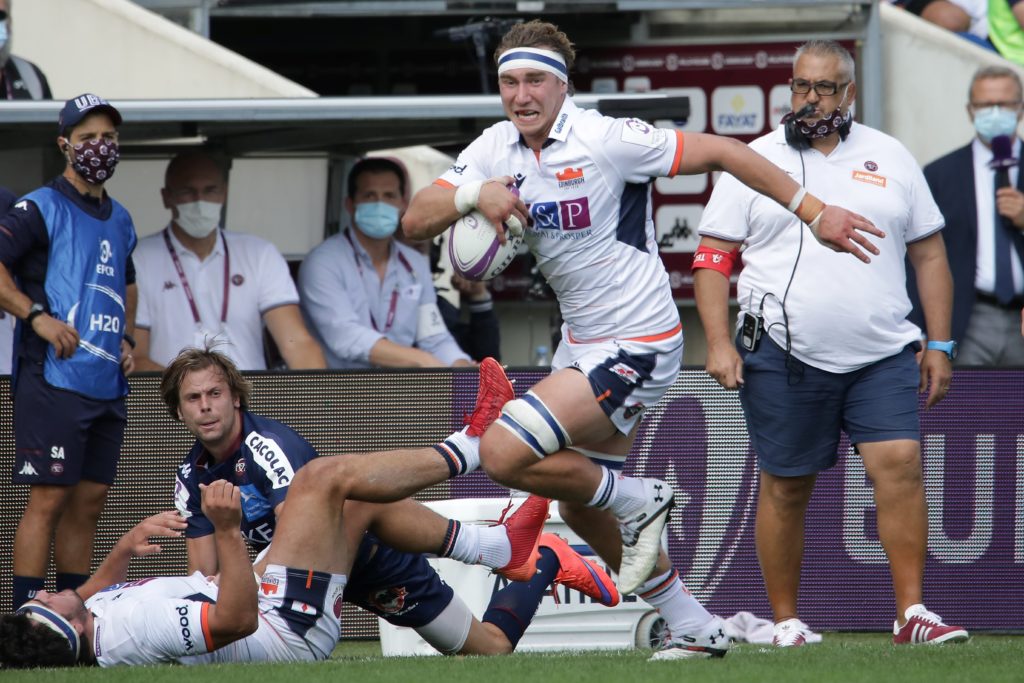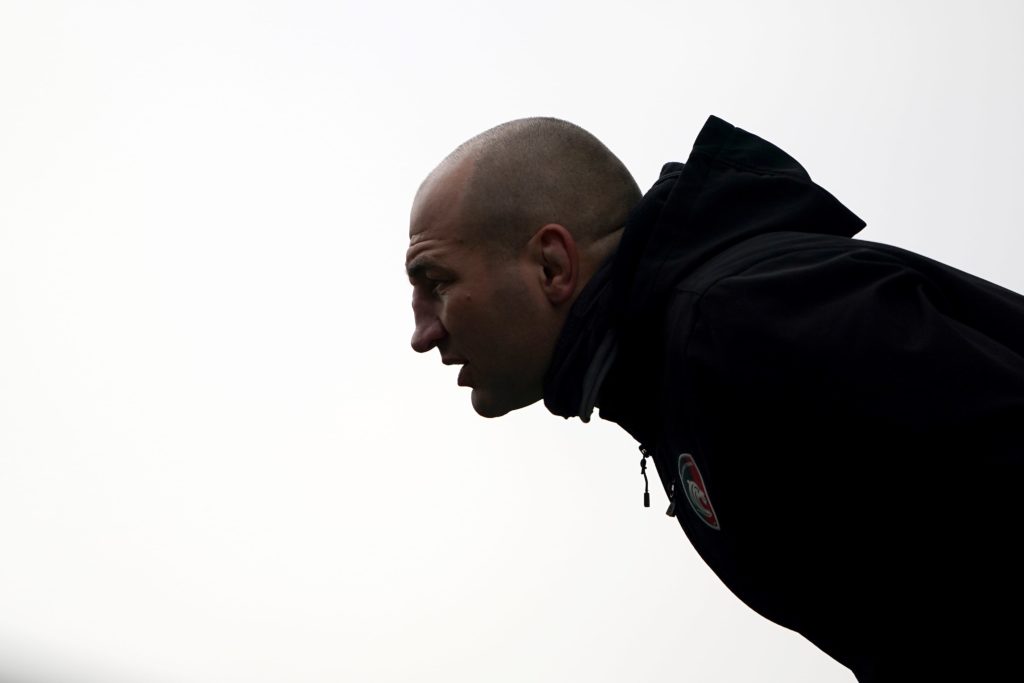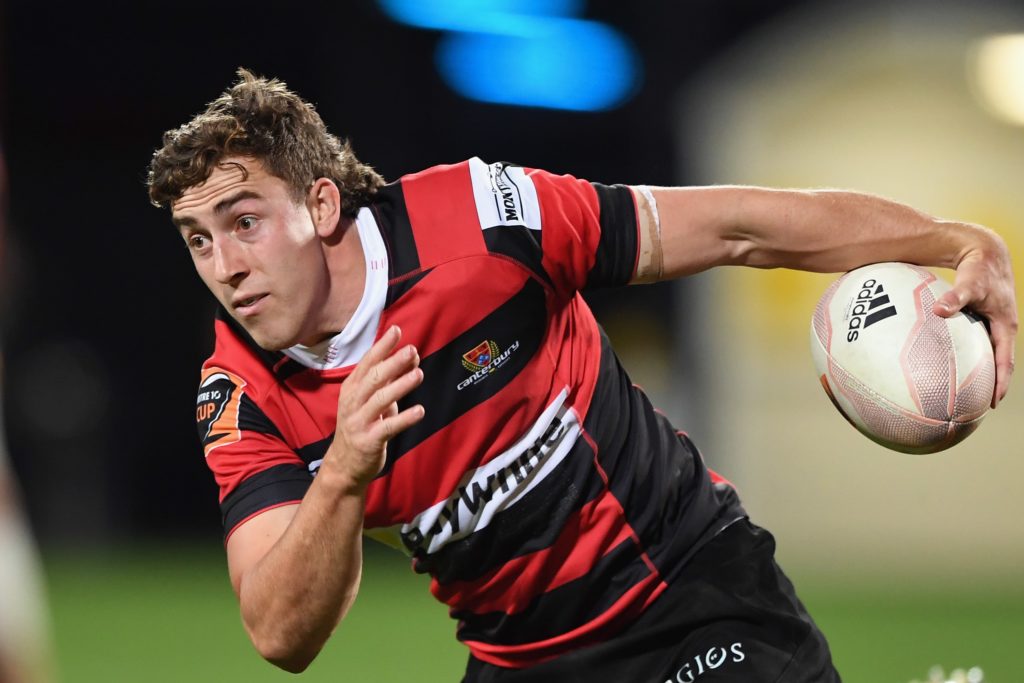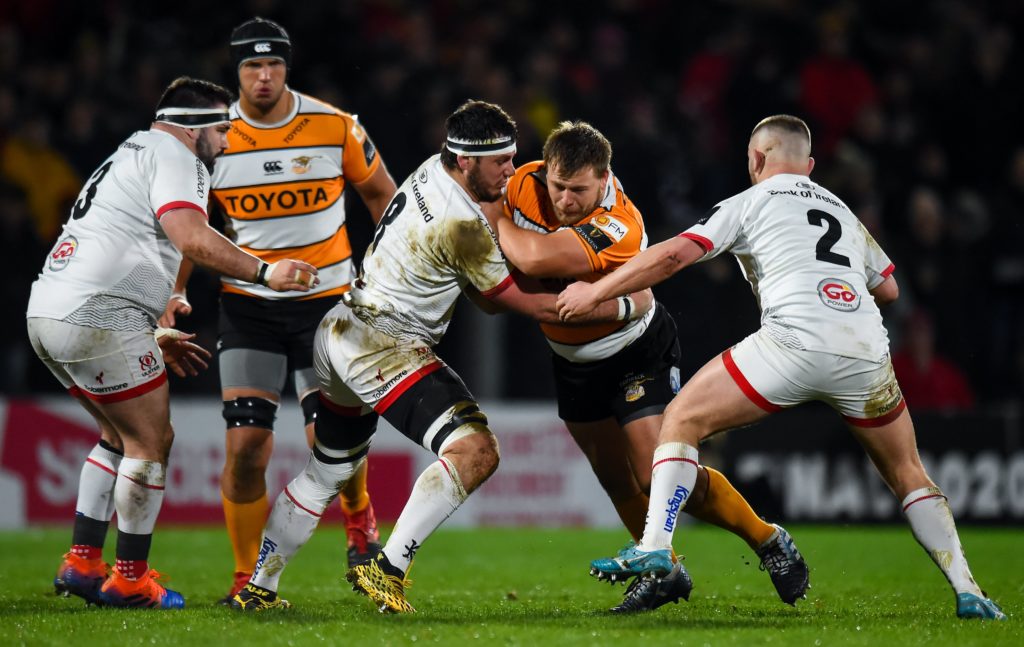Jan McGinity starts by letting us in on a little secret.
“When I was at Leicester looking at Scottish players in the context of a new £5m Premiership salary cap, I couldn’t afford to pay them the levels they pay in Scotland now, let alone on top.”
This, from the Tigers’ recently departed recruitment supremo, is striking. Since the dawn of professionalism, Scotland has been cast as the miserly urchin of the north, unable or unwilling to spend in line with the demands of the elite game, forever bringing a water-pistol to a gunfight in the frenzied arms race for talent.
The worry, as Covid-19 ravaged the sport, was that Scottish Rugby would lose a great swathe of its out-of-contract behemoths. It is routinely caned for failing to replace the big boys who go, but seldom praised when it opens the chequebook and keeps them put. As rugby gasps beneath the austere strain of coronavirus, the Premiership salary cap plummets, and wages across the game shrivel, it is showing the colour of its money.
Scotland, where they’ve had to, have paid. They sometimes don’t get the credit they are due for paying market value.
Jan McGinity
Hamish Watson, Jamie Ritchie and Bill Mata have been retained on significant contracts, some twice over. Adam Hastings was made a very competitive offer to stay with Glasgow, before choosing Gloucester. Even Huw Jones, back in 2019, was paid around £230,000 a year when Leicester were sniffing around.
“Those top Scottish players are well remunerated,” McGinity tells TheXV. “A few of them will get the majority of their commercial opportunities in Scotland, because Jonny Gray, Stuart Hogg and Finn Russell aren’t there.
“Scotland, to be fair, where they’ve had to, have paid. They sometimes don’t get the credit they are due for actually paying market value for players. I was surprised to see how well-paid some guys were when I went through the books. They would be on similar money in the Premiership. They made sure they were competitive.
“Jonny has now gone but in retaining him the first time round. Finn and Hoggy were well-paid. Finn is different because France is completely bananas, but Hoggy is probably on 20% extra at Exeter. It’s not life-changing sums but he needed to do it to kick his game on and that’s been illustrated recently.”
 Edinburgh against Bordeax-Begles.” class=”wp-image-10459″ />
Edinburgh against Bordeax-Begles.” class=”wp-image-10459″ />McGinity was at the heart of these Murrayfield machinations. For three years, he worked as the governing body’s head of sports operations, overseeing recruitment, scouting, player development and retention. Often, he was involved in compiling packages to entice players to stay at Edinburgh and Glasgow.
“If you’re a nailed-on starter for the national team, there is a far higher potential to get injured by moving away because you’ll still be expected to play for your club on international fallow weekends,” McGinity says. “You might get a bit more money but it will be to the detriment of your career.
“That short-term uplift of 20% – if you’re extending your career by two or three years, are you better off? Is your wife better off if she’s away from Scotland? It might be the best cultural decision from a family perspective to go to another part of the world, but if you’ve got a support network and all of your family around you at home, it’s a big decision to make.”
But you cannot clutch a Finn Russell forever, no matter how vast a salary you pay him. You cannot confine a Stuart Hogg or Jonny Gray to Glasgow when their brilliance demands a move to a bigger team with grander opportunities. At Racing 92 and Exeter Chiefs, each has flourished and brought back their gains to Scotland. Diversity of experience and culture is to be embraced.
It would kill Scotland if they ever did a minimum-cap rule for overseas players.
Jan McGinity
And besides, you cannot hoard all of these riches in Scotland while continuing to expose youngsters to professional rugby and field competitive sides during Test windows.
“Those higher-profile individuals probably need a step away just to get better,” McGinity says. “That creates gaps in the two pro-teams, but it also means they can take on a different experience and make hay while they can. It’s great seeing them bringing that experience of performing in highly successful teams back to the national team. That’s as much to do with the success of the national team as the good coaching and players coming through.
“It would kill Scotland if they ever did a minimum-cap rule, because I just don’t think on a financial level they can compete with the biggest spenders. The way they’ve stayed open-minded to letting guys go, looking at Scottish-qualified guys in other countries, looking at overseas players. With that small player pool, you have to be open-minded, and as much as they get criticised, I don’t think they could do anything differently than they currently are.”
It is here that Scotland’s shot-callers must perform an almighty balancing act. The two pro-teams must be successful entities, or why would fans bother paying to watch them, why would anybody non-Scottish sign for them, and why would coaches of the calibre of Danny Wilson and Richard Cockerill come north to lead them?

But as the primary feeder for Gregor Townsend, they must generate Test-capable Scotland players. In short, you need a huge contingent of Scottish internationals, a smattering of overseas nous, some young bucks burning up the ranks, and a few Scottish-qualified additions from other environments.
“Say you’re Edinburgh, where you’ve got a budget of £6-6.5m, or whatever they’re operating off now, you’ve pretty much got an entire pack with the national team and several backs,” McGinity, who previously spent four years in charge of Worcester’s recruitment, explains. “You’re almost having to sign an entire team to play.
“But those 14 or 15 guys with the national team have just taken up two thirds of your budget. The hardest bit is making the last third work to put a competitive team on the pitch for 10-12 games of the season.
“If two big players come out of contract at the same time, one would often have to take a hit and inherit the other’s contract. John Barclay leaves and probably Jamie Ritchie takes his contract. It’s having a firm idea of what that succession planning looks like. How do you fill the spots? That’s the tough thing. Look at, say, Jack Blain. He could eventually replace Blair Kinghorn who might stay two more years. Even Blair now is being paid, probably, market value.”
So how do you replace these Scottish galacticos, when you do not have the bulging wallet of a Top 14 president? McGinity encourages Scotland to box clever, to scour smaller nations in Europe, scout the Pacific Islands or America, even take a look at Namibia and Russia.
If I’m spending £250-300k, I don’t want someone taking the money, I want a leader. I want them taking pride in taking the team forward.
Jan McGinity
Scott Johnson was a hugely divisive figure as Murrayfield’s director of rugby, but on his watch, enormous reams of intelligence were gathered.
“One of the things Johnno did very well was to create a very comprehensive database through a lot of the analysts,” McGinity says. “It is a way of accessing data so we could see, for example, who were the top 20 ball-carriers in the world, who was making the most line breaks. From a technology point of view, we were ahead of the game.
“But Scotland can be quite a culture shift from what people are used to. I put a lot of weight, and this is quite old-school, in actually meeting people. Because if you’re potentially spending 5% of your budget on one individual, he has pretty much got to be the benchmark of your culture. He’s got to be there while the internationals are away.
“We talk about making sure the players bring what they’ve learned with them, recognise they might not be eligible for international rugby anymore, but that this team is going to be their new home and they’ve got to get on the bus and help take them forward.
“There are better people than me to judge them from a coaching perspective, but I can find out character, culturally and leadership-wise what they’re like. Say, if I’m spending £250-300k, I want a leader. I don’t want someone coming here, taking the money and leaving as soon as they can after training. I want them out in the community, working with kids, visiting schools, leading form the front, taking pride on how they’re going to take that team forward.”

The challenge for McGinity was in making a key decision, with huge sporting and financial implications, quickly. For all of the data and numbers and spreadsheets, the solution is unmistakeably rugby: get the beers in.
“Whether this is right or wrong, I’ll always have a drink with them. I’ve seen quite a lot of players that can go very quickly awry on a glass of wine or a couple of beers. You want to actually see them in a relaxed environment but also where they’re not necessarily going to be judged.
“I have to meet the partner. That’s a given. Because if they’re not happy at home, they’re never going to be happy at home with that individual in another country. That’s their immediate support network from a mental perspective, or if they get injured.
“The bright lights of a certain city might favour some but be a distraction for others. A player might be outstanding for our team if the game was played on a sunny pitch 20 times a season, but it’s not always like that in the UK, is it?
“When you’re spending those sums of money and it’s an investment in an individual and what they bring off the field as well, you can’t afford to get it wrong. There are a lot of statistics and technology, but sometimes you have got to go with your gut.”
You’ve got to look at things you can offer outside of pure salary
Jan McGinity
In the here and now, the game is fraught with strife. The market may not have changed much for the very best players, but for the overwhelming majority in the cluttered middle tier, contracts are scarce, packages smaller, and prospects grim. These feel like seminal times in how recruitment functions and how player movement will look in the years ahead.
“Transfer fees will come into it a lot more,” McGinity says. “Budget-wise, the effect of Covid across all leagues, salaries have only gone one way historically and now they’ll come back down.
“There will be a lot more assessment of medical data because injuries are becoming so much more prevalent. Concussion is a massive concern. I was getting to the point where I’d look at how many concussions a player had, and that would almost have as great an influence as any other injury around whether you take them or not.
 Cheetahs against Ulster.” class=”wp-image-10465″ />
Cheetahs against Ulster.” class=”wp-image-10465″ />“I was planning 18-24 months out of long-term deals knowing where the gap in the squad was going to be. There will be more succession planning and looking at players who might want to move further down the line.
“Because of the potential reduction in player wages, you’ve got to look at things we can offer outside of pure salary that will be an attraction. I am a massive believer in players having things outside of rugby – following a vocation, getting a tertiary qualification, and looking how as a business we can support them. If they have aspirations to get into the media, can we get in touch with sponsors who work in their chosen field?
“Somewhere like Leicester with a large commercial team and great sponsors, that doesn’t cost anything. The sponsor thinks they’ve got a great relationship with a first-team player they can utilise, and the player is getting a level of interaction in a business they’d never be able to normally, say speaking to a CEO or MD. That gives a sense of belonging and they might stay beyond their initial contract. People are going to have to look for an edge off the field, and utilise data or anything not financial, because ultimately the Premiership won’t be the biggest spenders.”
It’s still an arms race, alright, but the weaponry is changing.
More stories from Jamie Lyall
If you’ve enjoyed this article, please share it with friends or on social media. We rely solely on new subscribers to fund high-quality journalism and appreciate you sharing this so we can continue to grow, produce more quality content and support our writers.


Comments
Join free and tell us what you really think!
Sign up for free